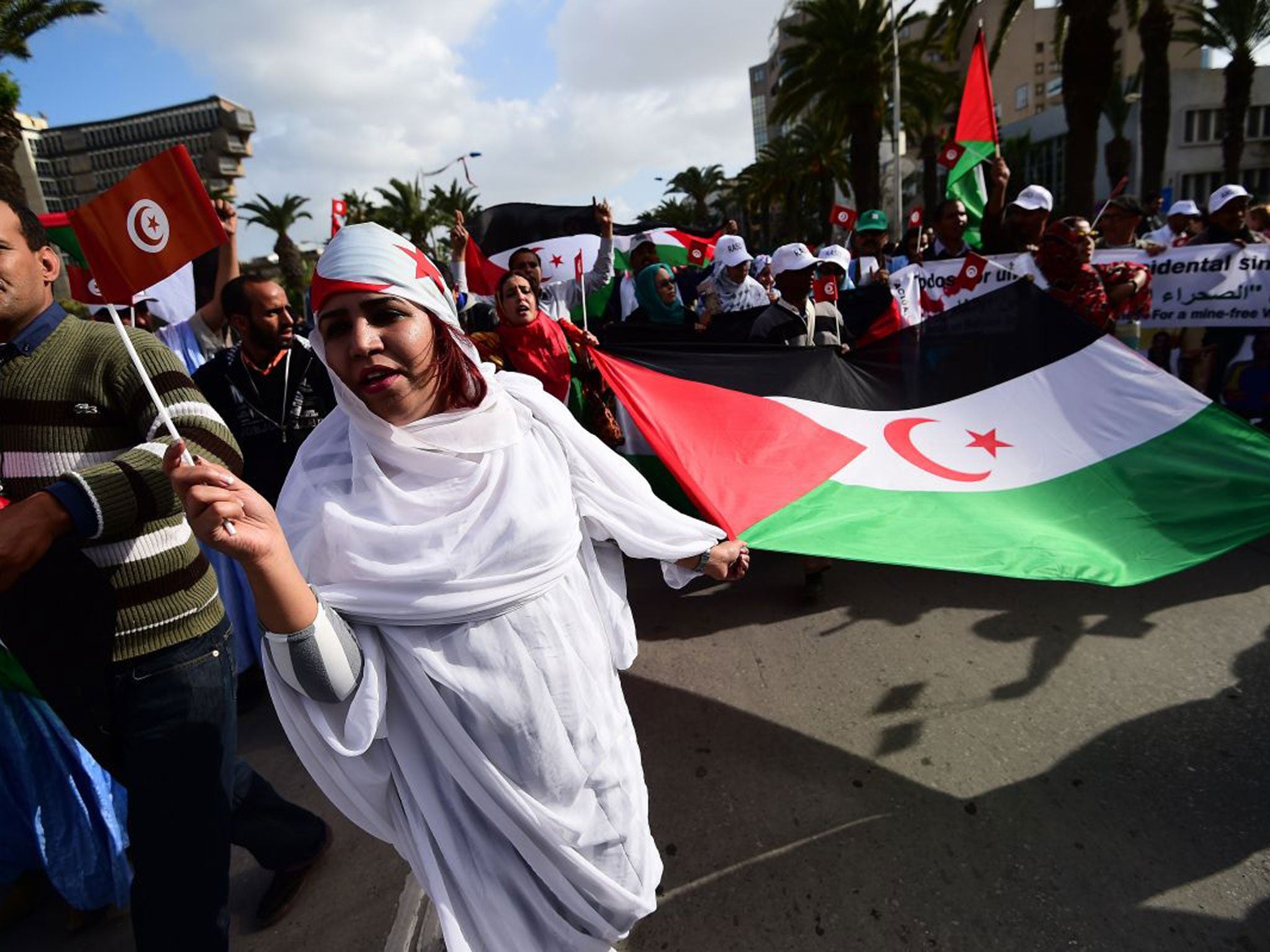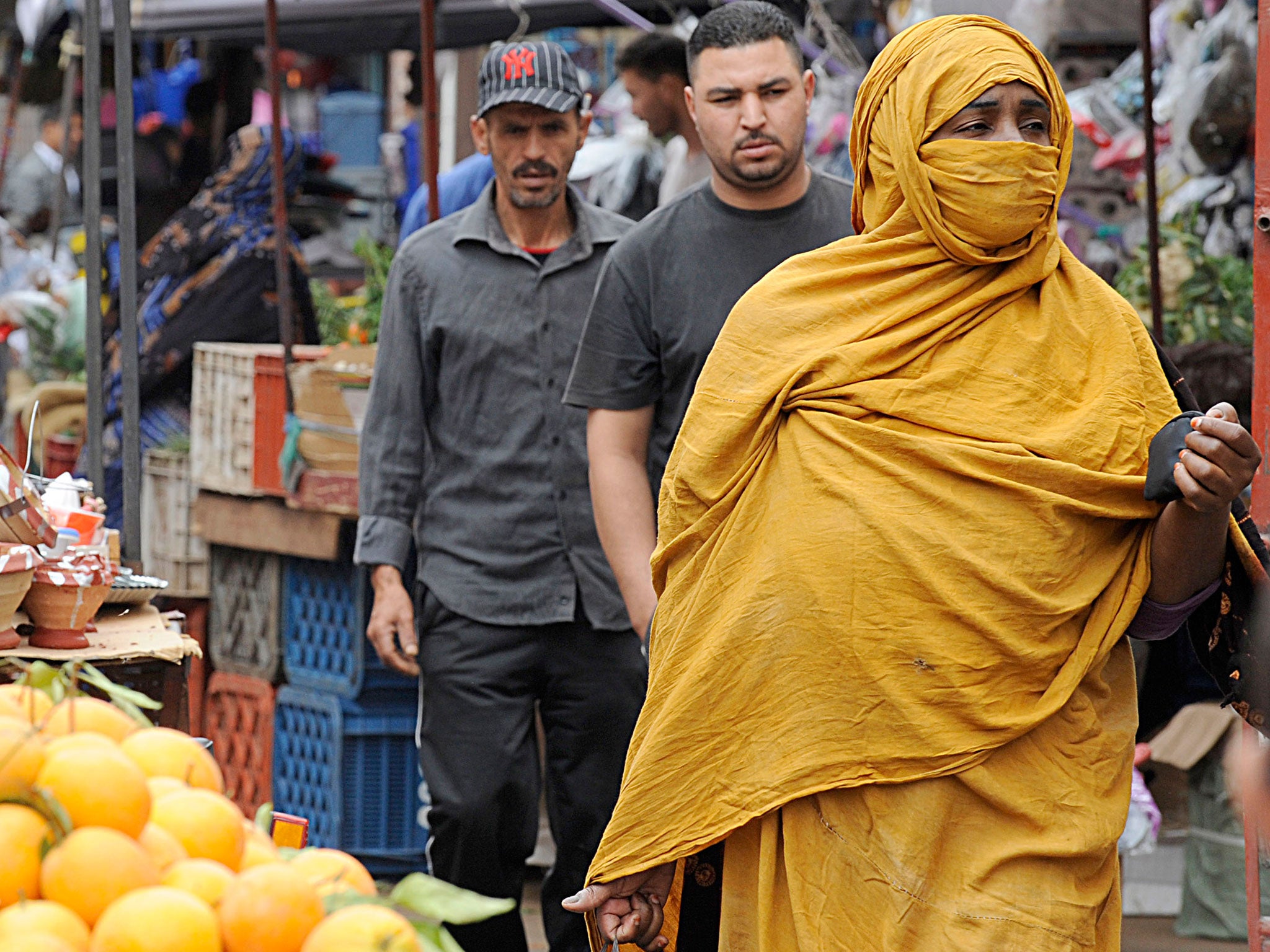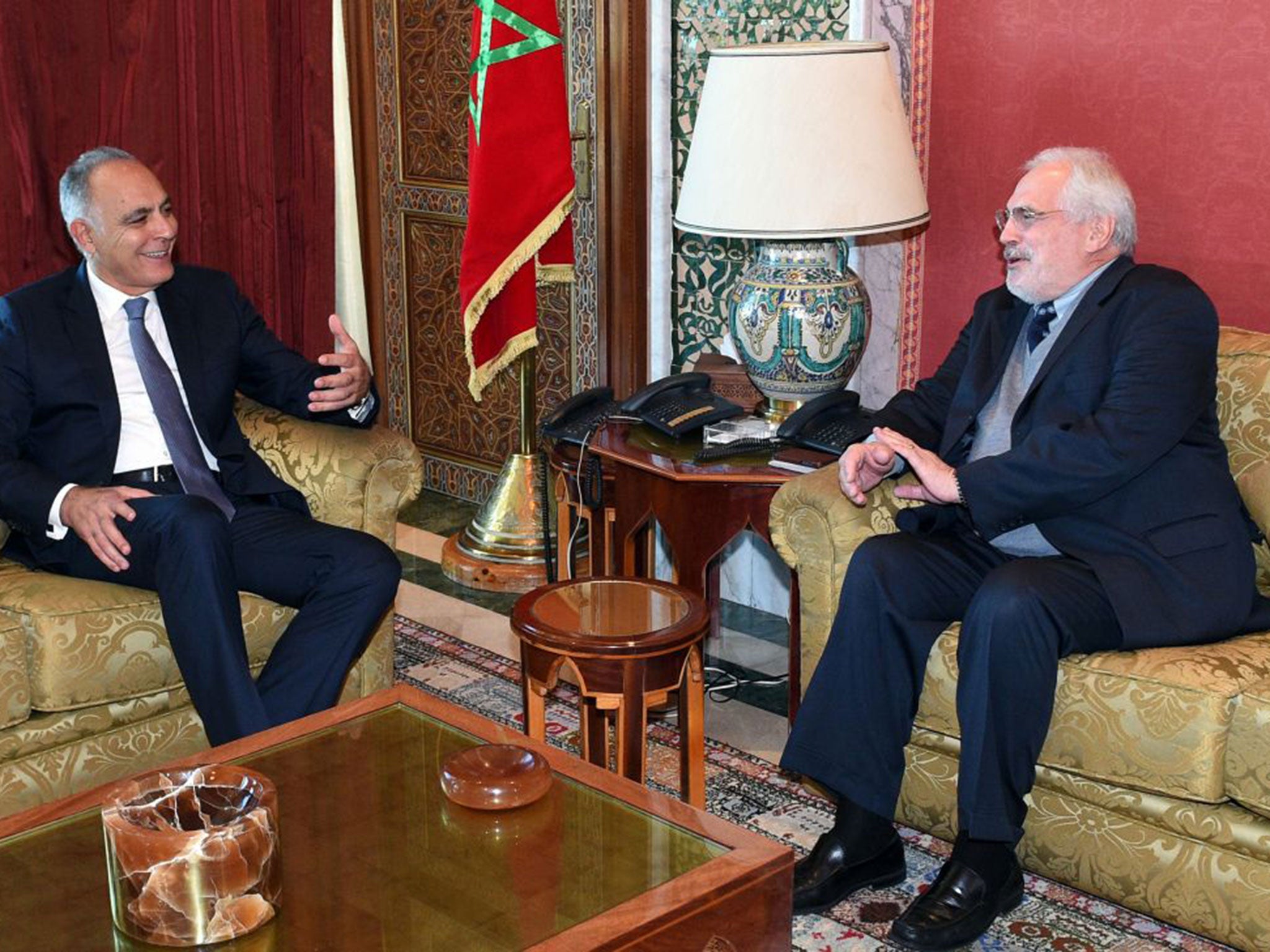Western Sahara: Africa's last colony takes struggle for self-determination to European courts
Country has suffered from being bounded by Morocco in the north, Mauritania in the south and Algeria to the east

Your support helps us to tell the story
From reproductive rights to climate change to Big Tech, The Independent is on the ground when the story is developing. Whether it's investigating the financials of Elon Musk's pro-Trump PAC or producing our latest documentary, 'The A Word', which shines a light on the American women fighting for reproductive rights, we know how important it is to parse out the facts from the messaging.
At such a critical moment in US history, we need reporters on the ground. Your donation allows us to keep sending journalists to speak to both sides of the story.
The Independent is trusted by Americans across the entire political spectrum. And unlike many other quality news outlets, we choose not to lock Americans out of our reporting and analysis with paywalls. We believe quality journalism should be available to everyone, paid for by those who can afford it.
Your support makes all the difference.It has been dubbed Africa’s last colony, and Western Sahara’s struggle for self-determination has embraced everything from violent conflict to passive resistance, and UN shuttle diplomacy has consistently failed to break the impasse over the fate of the disputed territories. Now the Sahrawi people are trying to break the deadlock themselves – in the courts.
The mineral-rich country on Africa’s north-west Atlantic coast is bounded by Morocco in the north, Mauritania in the south and Algeria to the east. All three countries have taken an active interest in the fate of the Sahrawi – not always altruistically. Spain, the former colonial power, relinquished the territory in 1975 to Morocco, which has formally claimed the land since 1957, and Mauritania.
Then there was conflict between the two countries and the Polisario Front – the Sahrawi liberation movement. Mauritania withdrew in 1979, leaving Moroccan security forces in nominal control. Controversially, an extensive wall was built through the desert to exclude Polisario fighters accused of coming into the country from refugee camps in neighbouring Algeria.
A national referendum was promised after a UN-brokered ceasefire in 1991, in which the population could vote for complete independence or integration with Morocco; but the plan stalled when Rabat and Polisario disagreed over who was entitled to vote. Morocco remains implacably opposed to independence but says it is prepared to talk about “autonomy”. The UN continues to push for a negotiated settlement. In December, Christopher Ross, personal envoy in the dispute to the UN secretary general Ban Ki-moon, admitted the situation was at a stalemate.

France, which has strong historical links with Morocco, has consistently opposed calls for UN action against Rabat by exercising its veto in the Security Council. Now Polisario is finding new ways to put pressure on Morocco to come back to the negotiating table.
In December it managed to put a stick in the spokes of the European Union’s agriculture agreement with Morocco. Many of the tomatoes sold in British and European supermarkets are labelled as Moroccan produce, but most are grown in Western Sahara.
The EU’s Court of Justice ruled last month that the favourable tariffs Morocco enjoys should not apply to goods from the territories it occupies. The EU failed to consider the impact on the rights with the Sahrawi people when it signed the deal, the court ruled. Campaigners in Britain are taking legal action to stop Moroccan exports to the UK enjoying similar tax breaks.

Buoyed by its successes, Polisario has brought a further case to the EU courts over an EU-Moroccan fisheries deal, which includes the territorial waters of the Sahrawi people. Norway has already started fining any of its vessels which trawl in Western Saharan waters. Oil companies such as Total which have explored for off and on-shore oil fields are facing growing local and international criticism, as are companies that import Western Sahara’s minerals, including its massive phosphate deposits. United States, Canadian and Australian miners have all been blacklisted by Scandinavian pension firms.
Polisario and its supporters are also keeping up the political pressure. Adala, a British NGO, recently submitted a report to the European Parliament and the UN Commission for Human Rights highlighting the regular human rights abuses taking place in the region. Sahrawi protestors face persistent harassment and persecution by security forces. Peaceful demonstrations are routinely disrupted by state violence and those taking part have been illegally detained.
Beccy Allen, of Adala UK, said it was essential the UN mission in the territory was given a human rights mandate. “There are plenty of white UN vehicles around but they don’t intervene on human rights issues. They are the only UN mission around the world without one and that has to change,” she said.
Join our commenting forum
Join thought-provoking conversations, follow other Independent readers and see their replies
Comments